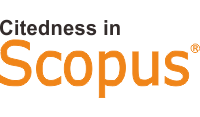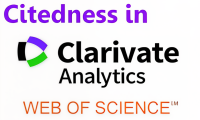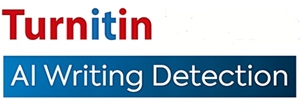The Contribution of Islamic Financial Instruments to Maritime Development: Evaluation and Policy Recommendation for Maluku Regions
DOI:
https://doi.org/10.46870/milkiyah.v4i1.1454Keywords:
Financial Instrument, Global Maritime Fulcrum, Islamic Finance, SDGsAbstract
Maritime development in the Indonesian archipelago faces structural challenges, particularly in obtaining inclusive, sustainable, and locally suitable funding in Maluku. To address these issues, Islamic financing system is considered as a potential alternative to conventional system, using instruments based on Maqasid al-sharia principles. This study aims to evaluate five Islamic financial instruments focusing on productive Waqf, Mudharabah, Ijarah, Musyarakah, and Sukuk, in supporting the development of maritime regions in Maluku. We used MCDA with AHP and TOPSIS methods to evaluate these instruments. The evaluation criteria were economic feasibility, Sharia compliance, risk management, social support, and environmental impact. The results rank instruments, with productive Waqf being the most effective, followed by Mudharabah, Ijarah, and then Musyarakah and Sukuk being less suitable. The study reveals that productive Waqf is at the top due to its non-commercial nature, community participation, and reaching marginalised groups. Mudharabah is considered good for micro and small businesses with profit-sharing. Ijarah is for financing assets without ownership transfer. Musyarakah and Sukuk are less flexible for coastal communities. The findings of this study highlight that Islamic financing systems have an essential role in guiding decision-making in the maritime development.
References
Antaranews Maluku. (2023). Maluku layak jadi poros maritim Indonesia. https://ambon.antaranews.com/berita/30792/maluku-layak-jadi-poros-maritim-indonesia
Apriantoro, M. S., Maheswari, S. G., Muthoifin, M., & Rosyadhi, R. I. (2024). The Potential of Islamic Mutual Funds: Research Stream and Future Direction. Iranian Economic Review, 28(4), 1248-1276. https://doi.org/10.22059/ier.2024.353061.1007606
Bisaro, A., & Hinkel, J. (2018). Mobilizing private finance for coastal adaptation: A literature review. WIREs Climate Change, 9(3), e514. https://doi.org/10.1002/wcc.514.
Brookings.edu. (2023). Indonesia as a Maritime Power: Jokowi’s Vision, Strategies, and Obstacles Ahead. https://www.brookings.edu/articles/indonesia-as-a-maritime-power-jokowis-vision-strategies-and-obstacles-ahead.
Budianto, E. W. H. (2023). Pemetaan Penelitian Risiko Reputasi pada Perbankan Syariah dan Konvensional: Studi Bibliometrik VOSviewer dan Literature Review. Al-Masraf: Jurnal Lembaga Keuangan Dan Perbankan, 8(1), 94–113. http://dx.doi.org/10.15548/al-masraf.v8i1.425.
Busari, S.A., Adebiyi, J.A. and Sitiris, M. (2025), "Accessibility and perceived effect of Sadaqah on student situational poverty during Covid-19 pandemic", Journal of Islamic Accounting and Business Research, Vol. ahead-of-print No. ahead-of-print. https://doi.org/10.1108/JIABR-03-2023-0098Campisi, D., Gitto, S., & Morea, D. (2018). Shari’ah-Compliant Finance: A Possible Novel Paradigm for Green Economy Investments in Italy. Sustainability, 10(11), 3915. https://doi.org/10.3390/su10113915.
Cavallo, M., Bugeja Said, A., & Pérez Agúndez, J. A. (2023). Who Is in and Who Is out in Ocean Economies Development? Sustainability, 15(4), 3253. https://doi.org/10.3390/su15043253.
Cisneros-Montemayor, A. M., Moreno-Báez, M., Reygondeau, G., Cheung, W. W. L., Crosman, K. M., González-Espinosa, P. C., Lam, V. W. Y., Oyinlola, M. A., Singh, G. G., Swartz, W., Zheng, C., & Ota, Y. (2021). Enabling conditions for an equitable and sustainable blue economy. Nature, 591(7850), 396–401. https://doi.org/10.1038/s41586-021-03327-3.
Chu, Y., Ye, S., Li, H., Strauss, J., & Zhao, C. (2023). Can Digitalization Foster Sustainable Financial Inclusion? Opportunities for Both Banks and Vulnerable Groups. Sustainability, 15(8), 6727. https://doi.org/10.3390/su15086727.
Dogan, B., Oturakci, M., & Dagsuyu, C. (2022). Action selection in risk assessment with fuzzy Fine–Kinney-based AHP-TOPSIS approach: A case study in gas plant. Environmental Science and Pollution Research, 29(44), 66222–66234. https://doi.org/10.1007/s11356-022-20498-2.
Evans, L. S., Buchan, P. M., Fortnam, M., Honig, M., & Heaps, L. (2023). Putting coastal communities at the center of a sustainable blue economy: A review of risks, opportunities, and strategies. Frontiers in Political Science, 4, 1032204. https://doi.org/10.3389/fpos.2022.1032204.
Gurning, R. O. S., Hutapea, G., Marpaung, E., Malisan, J., Arianto, D., Siahaan, W. J., Bimantoro, B., Sujarwanto, Suastika, I. K., Santoso, A., Utama, D., Kurniawan, A., Hardianto, S., Aryawan, W. D., Nanda, M. I., Simatupang, E. J., Suhartana, I. K., & Putra, T. P. (2022). Conceptualizing Floating Logistics Supporting Facility as Innovative and Sustainable Transport in Remote Areas: Case of Small Islands in Indonesia. Sustainability, 14(14), 8904. https://doi.org/10.3390/su14148904.
Guzel, A. (2021). Risk, Asset and Liability Management in Banking: Conceptual and Contemporary Approach. In: Hacioglu, U., Aksoy, T. (eds) Financial Ecosystem and Strategy in the Digital Era. Contributions to Finance and Accounting. Springer, Cham. https://doi.org/10.1007/978-3-030-72624-9_7
Hamidi, M.L., Zobair, K.M. & Pratama, A.A.N. The role of spirituality dimension in the sustainability of Islamic banking: a combined structural equation modeling and artificial neural network approach. Environ Dev Sustain 26, 21567–21593 (2024). https://doi.org/10.1007/s10668-023-03545-xHasan, M. M., & Lu, Q. (2023). Financial outreach, financial innovation and sustainable economic growth in the long run: Empirical evidence from developing countries. Sustainability, 15(6), 12533. https://doi.org/10.3390/su150612533.
Hwang, C. L., & Yoon, K. (1981). Multiple Attribute Decision Making: Methods and Applications. Springer-Verlag.
Kausar, A., Soemitra, A., & Batubara, C. (2023). Analisis Pengelolaan Wakaf Produktif dalam Efektivitas Pemberdayaan Sosial Ekonomi Masyarakat Kota Medan. El Buhuth: Borneo Journal of Islamic Studies, 5(2), 211-230. https://doi.org/10.21093/el-buhuth.v5i2.6131
Liang, Y., Zhang, S., Li, J., & Guo, L. (2022). Research on Financial Support, Technological Improvement and Marine Economic Development for China’s Coastal Regions. Water, 14(17), 2740. https://doi.org/10.3390/w14172740
Ma, Y., & Hu, X. (2024). Shadow banking and SME investment: Evidence from China's new asset management regulations. International Review of Economics & Finance, 93,332-349.https://doi.org/10.1016/j.iref.2024.03.033Ogara, D. A. E., Morishita, J., Davies, P. J., Mbui, M., Gamoyo, M., Njoroge, N., Chann, I. O., Igesa, B. S., & Ochieng, S. O. (2023). An indicator-based approach to assess sustainability of port-cities and marine management in the Global South. Frontiers in Marine Science, 10, 1052128. https://doi.org/10.3389/fmars.2023.1052128.
Pattinama, A. (2015). Pengelolaan Sumberdaya Kelautan dan Perikanan Berbasis Masyarakat di Wilayah Kepulauan Provinsi Maluku. Balitbang Provinsi Maluku.
Pennino, M. G., Brodie, S., Frainer, A., Lopes, P. F. M., Lopez, J., Ortega-Cisneros, K., Selim, S., & Vaidianu, N. (2021). The Missing Layers: Integrating Sociocultural Values Into Marine Spatial Planning. Frontiers in Marine Science, 8, 633198. https://doi.org/10.3389/fmars.2021.633198.
Rusydiana, A., Sukmana, R., Laila, N., & Avedta, S. (2022). Waqf, Maqasid al-Sharia, and SDG-5: A Model for Women’s Empowerment. AL-IHKAM: Jurnal Hukum & Pranata Sosial, 17(2), 325-355. https://doi.org/10.19105/al-lhkam.v17i2.6572.
Saaty, T. L. (2008). Decision making with the analytic hierarchy process. International Journal of Services Sciences, 1(1), 83–98. https://doi.org/10.1504/IJSS.2008.017590.
Saleem, A., Daragmeh, A., Zahid, R. M. A., & Sági, J. (2023). Financial intermediation through risk sharing vs non-risk sharing contracts, role of credit risk, and sustainable production: Evidence from leading countries in Islamic finance. Environment, Development and Sustainability, 26(5), 11311–11341. https://doi.org/10.1007/s10668-023-03298-7.
Scholtens, B., & Van’T Klooster, S. (2019). Sustainability and bank risk. Palgrave Communications, 5(1), 105. https://doi.org/10.1057/s41599-019-0315-9.
Schreiber, M.A, Wingren, I., & Linke, S. (2020). Swimming upstream: Community economies for a different coastal rural development in Sweden. Sustainability Science, 15(1), 63–73. https://doi.org/10.1007/s11625-019-00770-0.
Sulu, R. J., Eriksson, H., Schwarz, A.-M., Andrew, N. L., Orirana, G., Sukulu, M., Oeta, J., Harohau, D., Sibiti, S., Toritela, A., & Beare, D. (2015). Livelihoods and Fisheries Governance in a Contemporary Pacific Island Setting. PLOS ONE, 10(11), e0143516. https://doi.org/10.1371/journal.pone.0143516.
Sumaila, U. R., Walsh, M., Hoareau, K., Cox, A., Teh, L., Abdallah, P., Akpalu, W., Anna, Z., Benzaken, D., Crona, B., Fitzgerald, T., Heaps, L., Issifu, I., Karousakis, K., Lange, G. M., Leland, A., Miller, D., Sack, K., Shahnaz, D., … Zhang, J. (2021). Financing a sustainable ocean economy. Nature Communications, 12(1), 3259. https://doi.org/10.1038/s41467-021-23168-y.
Suryanto, J., Rahmayanti, A. Z., Purwanto, P., & Nadjib, M. (2023). Building Partnership for Social Innovation in Rural Development: Case Studies in Coastal Villages in Indonesia. IOP Conference Series: Earth and Environmental Science, 1153(1), 012020. https://doi.org/10.1088/1755-1315/1153/1/012020/meta
Tadesse, M. (2012). Risk, coping mechanisms, and factors in the demand for micro- insurance in Ethiopia. Journal of Economics and International Finance, 4(4), 79-91. https://doi.org/10.5897/JEIF11.143.
Thiele, T., & Gerber, L. R. (2017). Innovative financing for the High Seas. Aquatic Conservation: Marine and Freshwater Ecosystems, 27(S1), 89–99. https://doi.org/10.1002/aqc.2794.
Tok, E., Yesuf, A. J., & Mohamed, A. (2022). Sustainable Development Goals and Islamic Social Finance: From Policy Divide to Policy Coherence and Convergence. Sustainability, 14(11), 6875. https://doi.org/10.3390/su14116875.
Tsakalerou, M., Efthymiadis, D., & Abilez, A. (2022). An intelligent methodology for the use of multi-criteria decision analysis in impact assessment: The case of real-world offshore construction. Scientific Reports, 12(1), 15137. https://doi.org/10.1038/s41598-022-19554-1.
Yahya, A., Yusri, Y., Adwani, A., Adli, M., & Jafar, M. (2023). Legal Study of Building Sharia-based Investment in Aceh: The Challenges After the Enactment of the Qanun of Sharia Financial Institution. Samarah: Jurnal Hukum Keluarga Dan Hukum Islam, 7(2), 959-977. https://doi.org/10.22373/sjhk.v7i2.17653.
Yasniwati, Y. (2023). Efektifitas Penggelolaan Wakaf Produktif Bagi Kesejahteraan Sosial Di Indonesia. UNES Law Review, 5(4), 1919–1929. https://doi.org/10.31933/unesrev.v5i4.578.
Downloads
Published
How to Cite
Issue
Section
License
Copyright (c) 2025 Mar'atun Shalihah, Deny Yarusain Amin, Afdhal Yaman, Dadang Husen Sobana, Abdul Rilan Syarif

This work is licensed under a Creative Commons Attribution-ShareAlike 4.0 International License.

















